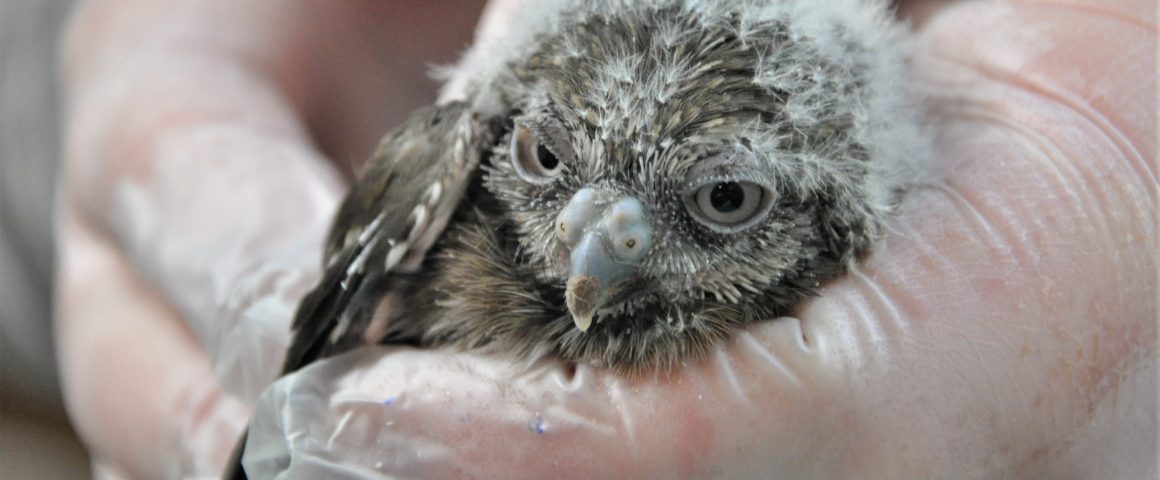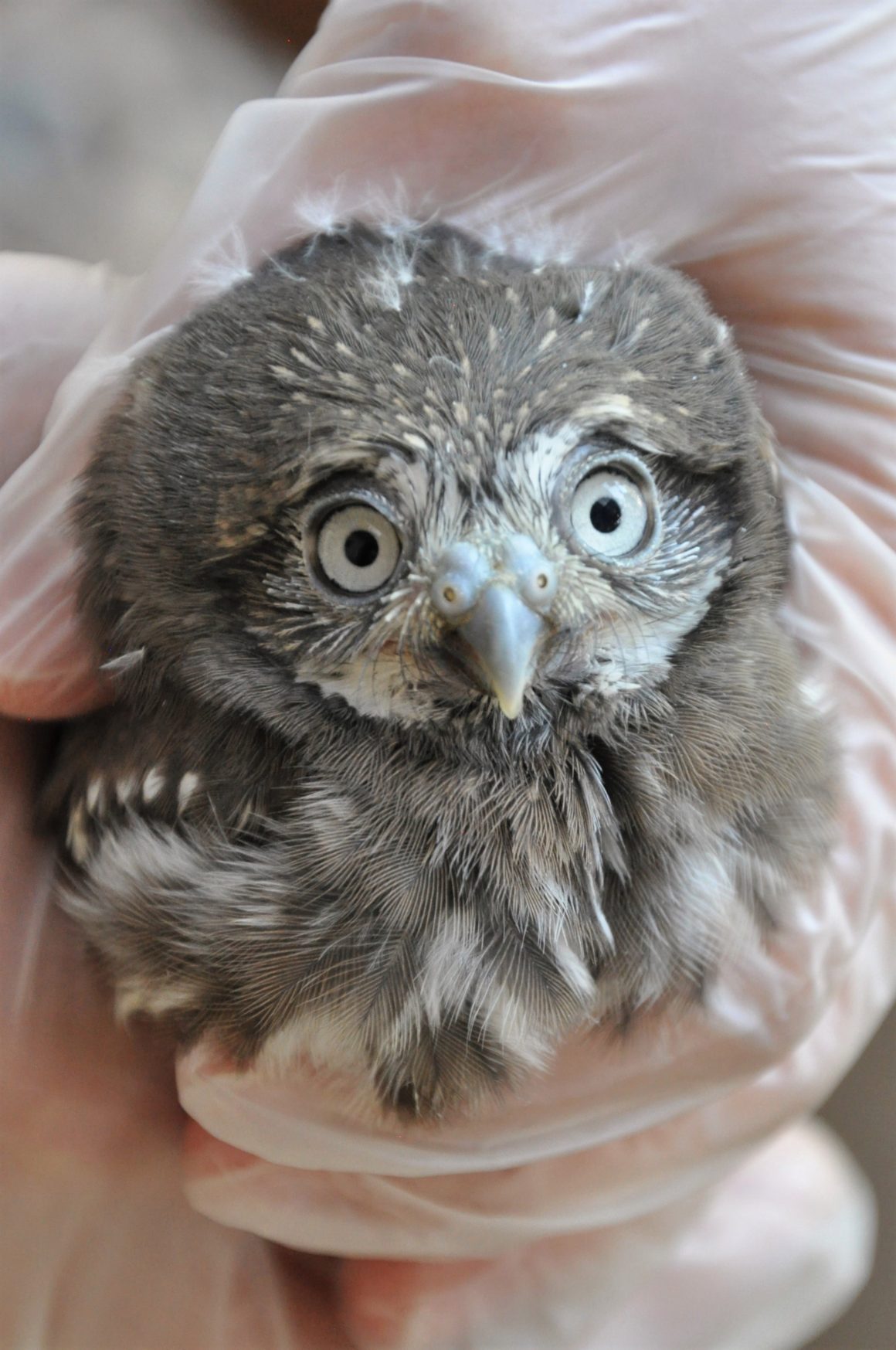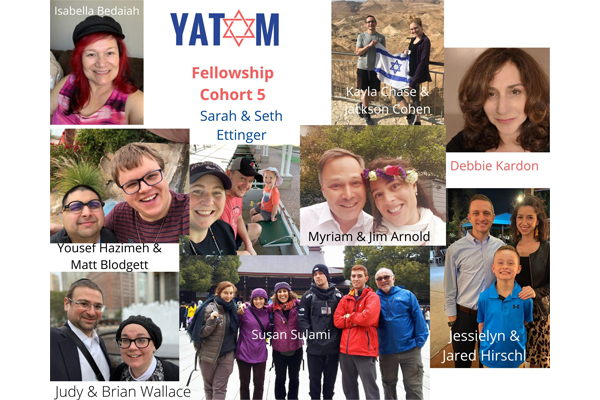Photo: A 3-week-old pygmy-owl nestling. Photos courtesy the Phoenix Zoo
The Arizona Center for Nature Conservation (ACNC)/Phoenix Zoo is excited to announce its first successful breeding and hatching event for the cactus ferruginous pygmy-owl (Glaucidium brasilianum cactorum). Four nestling owls are currently being reared behind-the-scenes by two pairs of adult pygmy-owls at the Zoo’s Arthur L. and Elaine V. Johnson Conservation Center. The owl chicks were produced as part of a pilot breeding program started by Wild at Heart Raptor Rescue (wildatheartraptors.org) in partnership with Arizona Game & Fish Department and the US Fish and Wildlife Service.
The Zoo’s Conservation and Science Department began its involvement with the cactus ferruginous pygmy-owl in 2017 during the construction of a Multi-Species Conservation Support Center. With the new facility completed, the Zoo received its first pair of owls in January 2018 from Wild at Heart. Under the direction of the ACNC/Phoenix Zoo Curator of Conservation and Science, Brad Poynter, Zoo staff logged over 500 hours in the field in spring of 2018, assisting Arizona Game & Fish Department and the US Fish and Wildlife Service with wild pygmy-owl surveys and learning about owl behavior. The Zoo received an additional two males and two females in summer 2018 and was able to pair them for breeding at the start of 2019.
After observing courtship behaviors in all three pairs of pygmy-owls, staff counted a total of 11 eggs between the three nests. After a month-long incubation period, three eggs hatched from one nest, and one egg hatched from a second. The third nest contained only infertile eggs, but the Zoo is hopeful for a second clutch of eggs from that pair. “We’re thrilled about the success we’ve had with pygmy-owls in just a short amount of time, and excited to be working with our conservation partners to learn about the behavior and reproduction of this native species,” says Director of Conservation and Science, Dr. Tara Harris.
The cactus ferruginous pygmy-owl weighs fewer than 3 ounces and is native to Arizona, southern Texas, and northern Mexico. As alluded to in its name, it nests in saguaro cactus cavities. The pygmy-owl was historically found in the Phoenix region, but its range and potentially its population have been declining since the 1970’s due to habitat loss and other factors. Once listed as Endangered under the U.S. Endangered Species Act, the cactus ferruginous pygmy-owl is currently considered a Species of Greatest Conservation Need in Arizona and likely numbers fewer than a hundred individuals in the state.
The Zoo’s four pygmy-owl nestlings are looking strong and expected to fledge in the upcoming weeks. Once the birds have fledged from the nest, they will be paired with others to create more breeding pairs for the program.
About the Arizona Center for Nature Conservation
The Arizona Center for Nature Conservation operates the Phoenix Zoo and the South Mountain Environmental Education Center. The ACNC advances the stewardship and conservation of animals and their habitats while providing experiences that inspire people and motivate them to care for the natural world.
The Phoenix Zoo is the only zoo in the Valley accredited by the Association of Zoos and Aquariums and is a non-profit zoological park, serving 1.4 million guests annually. The Zoo is home to more than 3,000 animals, many of which are endangered and threatened species. For information on upcoming events, exhibits and activities at the Phoenix Zoo, visit phoenixzoo.org.
The South Mountain Environmental Education Center re-opened through an Operating Agreement between the Phoenix Parks and Recreation Department and the ACNC.
The facility is a hub for guests exploring the park/preserve as well as a gathering place for the community to learn about plants, animals, natural history and the conservation needs of the Sonoran Desert. It also is a popular destination for school field trips and family outings.
Learn more at smeec.org.







